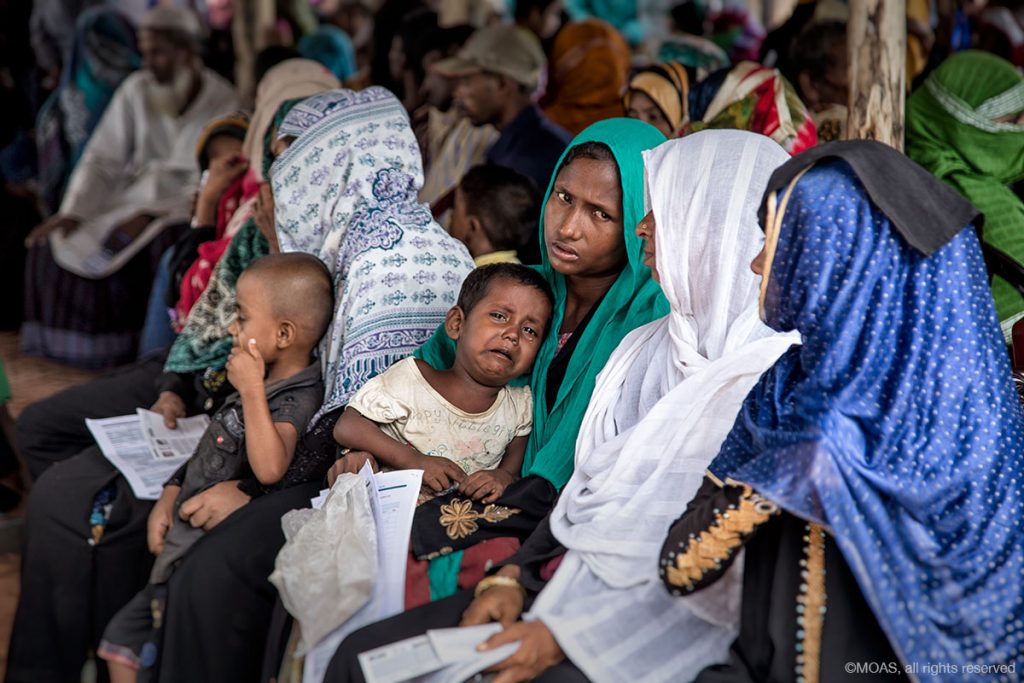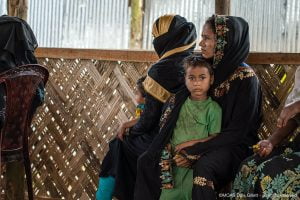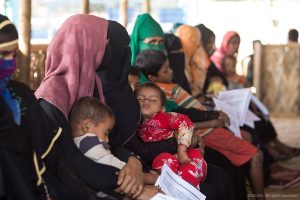“I find life beautiful, and I feel free. The sky within me is as wide as the one stretching above my head. I believe in God and I believe in man, and I say so without embarrassment. Life is hard, but that is not a bad thing.” Etty Hillesum
Recently, this quote has often come to my mind. It was written in her diary by Etty Hillesum, a Dutch writer murdered by the Nazis for being Jewish in 1943. It came to my mind while I was on board the Phoenix, out at sea to rescue as many people as possible. It came to my mind during the most difficult rescue operations, when the difference between life and death was a matter of seconds. It came to my mind, too, when MOAS was attacked to discredit solidarity and brotherhood. And it still comes to my mind each time I visit the Rohingyas’ makeshift settlements or the Bangladeshi host communities sharing their land and resources with these newly-arrived people.
With the MOAS SAR and medical teams, I have personally experienced the consequences of barbarism, when people forget their own humanity and surrender to hatred, violence and lack of empathy. The consequences of civil wars, of conflicts among states or factions, of drought and famine triggered by extreme climate events are in front of our eyes, but in my case, they don’t stay behind a mobile screen, a TV or a computer. They are in front of me with their stories of pain and exclusion, but also of hope and joy at finding safety.
When recalling the liberation of Auschwitz – a hellish place that has become a symbol of Jewish extermination perpetrated by Nazi Germany– it is fundamental to foster dialogue, both in schools and across society, and to reflect on current dangers. In fact, if we are not able to acknowledge the hidden dangers threatening our global community, Holocaust Memorial Day may turn into senseless rhetoric. We must always be able to recognise intolerance, because beyond all discrepancies, hatred has a common core in its victims. Usually one or more victims become the scapegoat, blamed by everyone for everything. Jewish people were a scapegoat for the Nazis, Muslims were the same in Bosnia, and today we target the persecuted people of our world, mainly migrants and refugees.

Instead of being empathetic and compassionate towards those who have lost everything and risked their lives in search of a better future, instead of using all provisions enshrined in law to safeguard those in need, we opt for empty propaganda, using fake news to discredit solidarity and people who have survived hellish journeys. 73 years on from the liberation of Auschwitz, many gates have yet to be opened to free the innocent victims of our era and build a sustainable peace. But the most difficult gates to fling open are inside of us, each time we decide to turn a blind eye to injustice and choose indifference.



